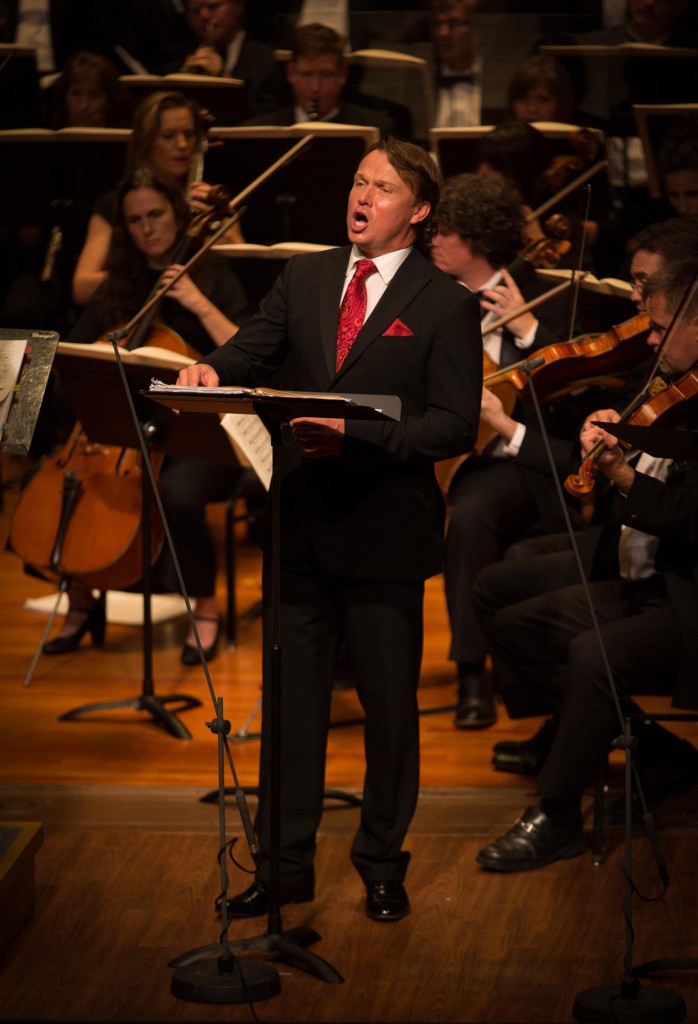Odyssey Opera unearths rare Dvořák with “Dimitrij”
Antonin Dvořák always saw himself first and foremost as a composer of opera. Just before his death in 1904, he sat for an interview with the Viennese newspaper Die Reichswehr in which he stated that his “main inclination was towards dramatic composition.”
History, though, has turned out differently. The view that he was primarily an instrumental composer—an idea pitched by critic V. V. Zeleny—began to fill the presses as early as 1879, and the success of later works such as his “New World” Symphony and late symphonic poems only crystalized that opinion.
Yet when one reads about Dvořák it is impossible to ignore his operatic output, which totals eleven works, both tragic and comic, for the stage. Today only the melancholy fairytale Rusalka remains popular, leading Dvořák scholar Jan Smaczny to summarize that “the transcendent excellence of [that] opera has tended to obscure the virtues of his other works in the genre.”
One such work that has fallen into undeserved neglect is Dimitrij, which Gil Rose and Odyssey Opera presented in a concert version Friday night at Jordan Hall, marking the work’s belated Boston premiere.
Completed in 1882, this grand opera in four acts concerns the twisted and often bloody political conflicts of seventeenth-century Russia. The libretto, written by Marie Červinková-Riegrová after works by Friedrich Schiller and Ferdinand Bretislav Mikovec, picks up where Mussorgsky’s Boris Godunov left off.
Boris was a usurper, having come to power after calling for the murder of Dimitrij, the young son of Ivan the Terrible and his wife Marfa. Dvořák’s opera opens with Boris’ death and the looming question of who will succeed as Tsar. Enter “False Dimitrij,” a pretender who stirs the passions of the Russians. His power, and the plot of the opera, hinges upon Marfa, who knows that he really isn’t her son, yet she goes along with the story to get revenge over Boris’ family. Historians don’t agree on the identity of the real False Dimitrij, but Dvořák’s character believes from birth that he is the actual prince who is entitled to the throne.
Czech tenor Aleš Briscein brought Dimitrij to vivid vocal life. Known for roles that stretch from Mozart to Wagner, Briscein brought a gleaming, lyrical voice to the character. His upper range was ripe and radiant and his phrasing of key arias in Acts 1 and 2 were smooth and supple, projected an affecting innocence in the role. Dimitrij, as performed Friday night, came across as more a victim of circumstance than villain.
Marina, his proud. ambitious Polish wife, only stays married to the pretender in order to gain power herself. In the role, soprano Dana Burešová sang with a bright sound to capture effectively the pride and conceit in her Act 2 aria. When the woman is driven to jealousy after Dimitrij falls for Xenie, Burešová’s singing blossomed with intensity.
Xenie, the lone surviving daughter of Boris Godunov, is tormented by the Russian crowd. Dimitrij saves her and the two share some tender, even heated moments in Acts 2 and 4, which were sung beautifully by Briscein and soprano Olga Jelínková. The soprano possesses a svelte voice that meshed smoothly with Briscein and the orchestra. Unfortunately, when the music swelled to dramatic heights, the ensemble loudly often drowned out her light voice. She fared better in her Act 4 aria, which flowered delicately.
As Sujskij, who plots to bring an end to Dimitrij’s rule, Mark S. Doss sang with a robust baritone that mined the palpable anger from his encounter with the Tsar in Act 2. Soprano Irina Mishura, with her rich, dark voice, found the conflict in Marfa as she mourned her real dead son yet wished to preserve her position. The rest of the cast, which included James Demler and Seth Grondin as Polish soldiers and Christopher Job as leader of the Tsar’s army, sang with bold conviction and penetrating musicality.
Odyssey Opera’s performance made use of Milan Pospíšil’s 2004 critical edition that restores the work to its original 1882 version. Musically, it abounds in lyricism with subtle shades of Wagner creeping into the texture.
The chorus, prepared by William Cutter, supplied the beating heart of Dvořák’s lush score. The rousing choral numbers, sung with power and precision, captured the nationalistic fervor of the Russian people.
The orchestra responded with aplomb. Gil Rose led a committed and confident reading that found the drama on every page of the score.
Posted in Performances


Posted Sep 17, 2016 at 3:32 pm by Judith Zielinski Marshall
Having been fortunate enough to see “Boris Godunov” in May by Commonwealth Lyric Opera and then this magical Odyssey presentation of Dimitrij I thank the reviewer for the wonderful comments on an altogether overwhelming opera. Exquisite and lush music, thrilling and crisp chorus talent in a difficult language, thank you Gil Rose for bring the artists and music together. Dvorak would have loved it.